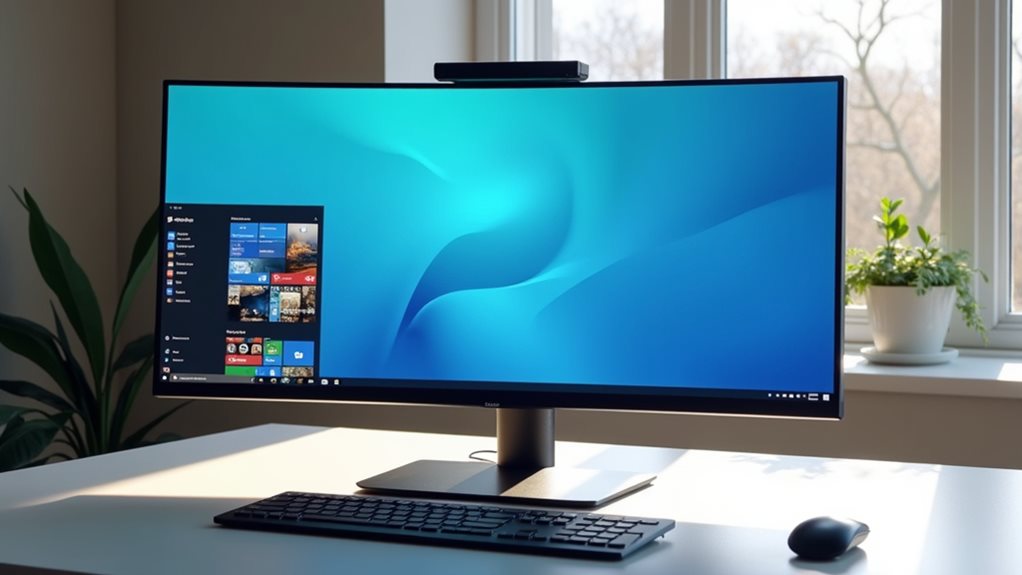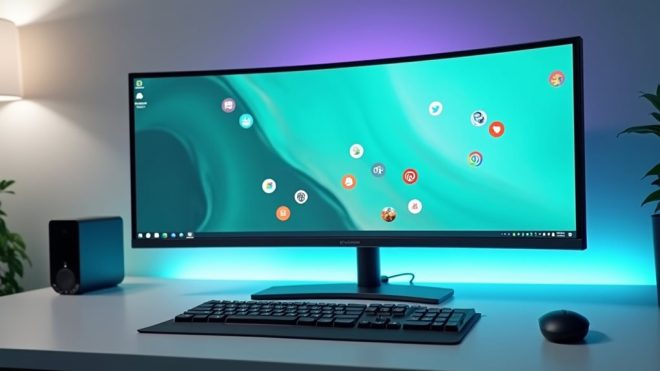Google’s Bold Move: Android Comes to PCs in 2025, Challenging Windows Dominance****
In a surprising twist, Google is set to launch a desktop version of Android in 2025, aiming to upend Windows’ reign. This innovative OS melds ChromeOS and Android, leveraging Qualcomm’s powerful technology. Users can expect a fluid experience across devices, but will it truly sway the PC crowd? With existing Android apps ready for PC, the stage is set for a potential revolution in personal computing. Curious about its wider implications? Stay tuned.

As Google teams up with Qualcomm to deliver a full desktop Android experience, it sets its sights squarely on the PC market, where Windows and macOS have long reigned supreme. This game-changing partnership has the potential to shake up the traditional computing environment, bringing the versatile Android ecosystem into the realm of desktop computing. But how will this strategic shift affect every computer user’s life?
This initiative aims to fuse ChromeOS and Android into a cohesive operating system designed for desktop use, targeting an expansion that seeks to challenge the dominance of long-established giants. Announced during the Snapdragon Summit 2025, the collaboration emphasises the importance of cross-device integration — a feature many users have been yearning for. The focus on AI-powered efficiency suggests a shift from simple computing towards a concentrated, mobile-desktop convergence that promises all the familiar Android benefits but on larger screens. Google’s move to integrate the Android AI stack into this platform is expected to revolutionize the way users interact with their desktops.
The technical foundation of this new platform is similarly intriguing. Google’s desktop Android will leverage Qualcomm’s powerful Snapdragon chips, ensuring performance that rivals traditional PCs. Expect a vast array of Android applications optimised for this new environment, allowing users to capitalise on the robust app ecosystem that has defined mobile devices for years. The integration of AI improves user interaction and system proficiency, enabling seamless multitasking experiences that move beyond what mobile devices currently offer.
Market impact is expected to be significant. By launching a desktop Android experience, Google resets the playing field, introducing not just another player, but a formidable contender equipped with the strengths of mobile technology. Qualifying as a serious disruptor, this initiative may attract users who seek alternatives to the status quo, leveraging Qualcomm’s hardware prowess as a viable alternative to conventional x86-based systems.
Could this be the catalyst for a shift in the very nature of operating systems?
Google’s vision extends beyond mere functionality; it aims to unify the user experience across mobile, tablets, and desktop devices. With a design that allows for flexibility across various screen sizes, Android’s architectural adaptability opens the door to frictionless changes, ensuring continuity of data and applications. The question lingers: how seamlessly will users be able to switch between their Android phones and desktop interfaces?
Google envisions a seamless user experience across devices, but how easily will users transition between Android phones and desktops?
For developers, the shift presents an enticing opportunity. Existing Android developers can kill two birds with one stone by targeting PC users without extensive rewrites or porting efforts. This open-door policy to the PC market boosts the potential for app innovation, spurred by the synergetic effects of Android’s native support on ARM and cross-platform capabilities.
Looking ahead, hardware manufacturers can expect fresh opportunities. Qualcomm’s architecture is likely to inspire a wave of ARM-based PCs that dare to defy conventional norms. As Google forges tighter ties in its ecosystem, users are encouraged to stay within its domain, dramatically altering the landscape of personal computing.
Will 2025 mark the beginning of a new era, where Android challenges the tyranny of Windows and macOS? Only time will tell—but it undoubtedly promises to be a thrilling ride.
Final Thoughts
Conclusion: Android’s Bold Entry into PCs
As Google prepares to launch Android on PCs in 2025, excitement is building in the tech community. This move could potentially challenge Windows’ long-standing dominance in the operating system market. With fast app launches and smooth device integration, Android aims to create a unique blend of mobile and PC experiences. While some may have concerns regarding compatibility, it’s evident that the competition is intensifying.
For those looking to navigate this new landscape, Home Computer Technician is here to help. Our team is equipped to assist you with the transition to Android on PCs, ensuring a seamless experience. Don’t hesitate to reach out! Click on our contact us page to get in touch and learn how we can support you in this exciting era of technology.

